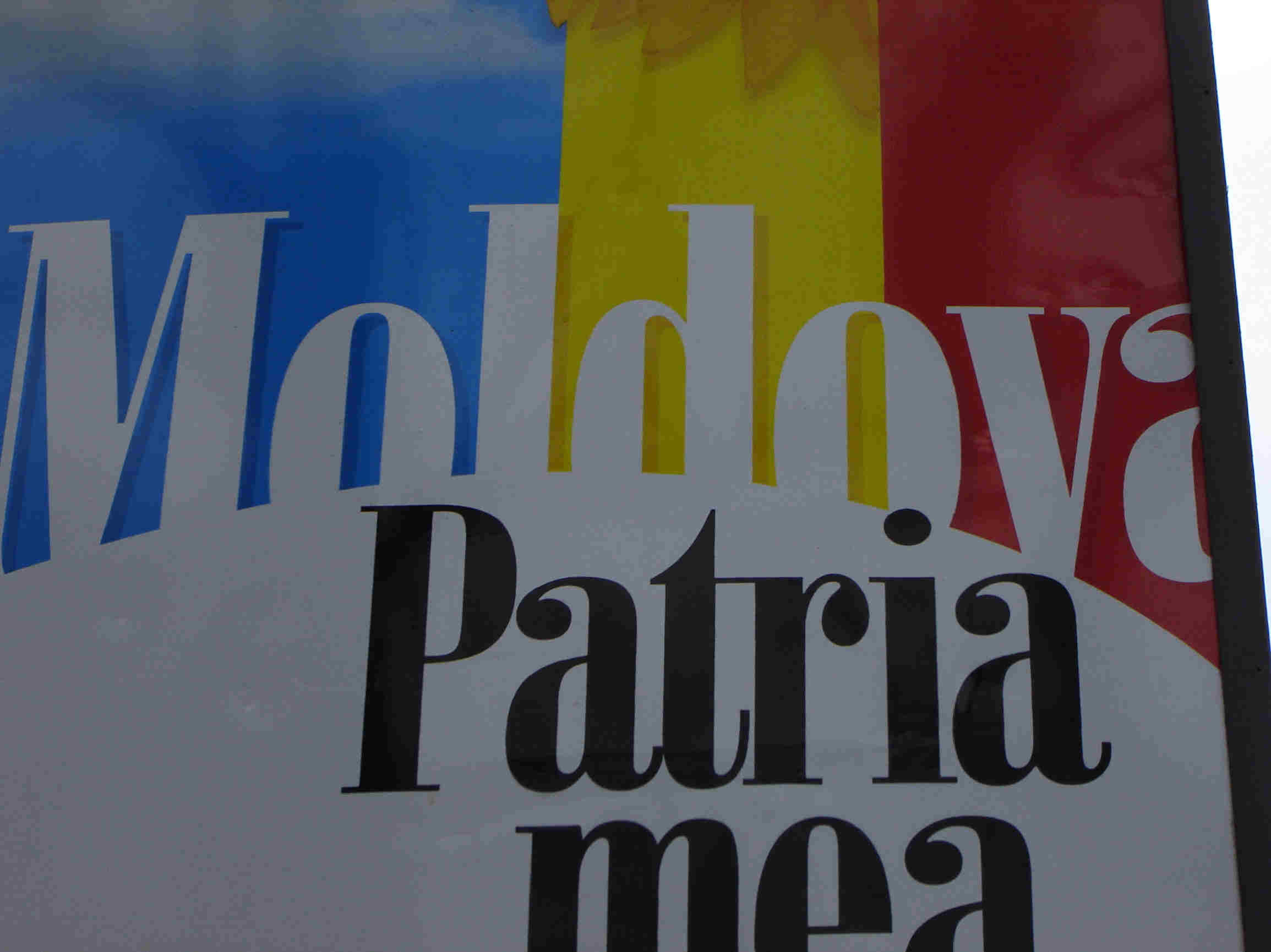8 Mar...Happy International Women's Day!...March
8th is International Women's Day, which is a national holiday in
Moldova--and I get the day off school (even though I'm not a woman)!
The holiday has been a part of the international socialist workers
movement since before the establishment of the Soviet Union (though it was
adopted as a Soviet national holiday shortly after the 1917 revolution).
It traces part of its origin to a fire in a New York City sewing factory
that killed 140 women in the early 1900s.Traditionally, the holiday is
celebrated by giving women "a day off." Husbands/sons should
bring their wives/mothers some flowers and if possible relieve them from
household chores such as cooking and childcare. While the Soviets
idealized gender equality, it was often the case that Sovietifiation meant
that a woman got to work all day at a job outside the home and then came
home to catch-up her work at home (cooking, childcare, etc.).
Meanwhile the men, "liberated" from their traditional agricultural duties
by industrialization, were able to go out with their friends--get
drunk--and too many times come home and engage in spousal abuse. Of
course this is not unique to Moldova but the pattern is still noticeable
here--I see drunk men (usually in groups) all over Chisinau, but I have
yet to see a drunk woman--not saying there are none--just that I have not
seen any.
All this week there have been concerts and special events to mark
International Women's Day in Chisinau. There are places where
Moldova can be especially proud of the achievements of women. For
example, Moldova has the second highest percentage (67%) of females in
the professions (law, medicine, etc.) of any country in the world!
This is obvious if you walk onto the campus of any university, hospital,
or government office. Women make up 21% of the national Parliament
(20% of the ruling Communist Party deputies are women--this is a higher
proportion than Republican women have in the U.S. Congress) . But
sadly, there are also some very frustrating realities for women in
Moldova.
Due to the poverty in Moldova, women regularly flee the country to work
in Western Europe--sometimes even abandoning their children. It is
not uncommon for a Moldovan woman trained as a teacher to work as a maid
in Italy or a woman qualified as an interpreter working in a nursing home
in France. Irina told me the other day that two of her best students
(females, of course) will be leaving the university to pick strawberries
in Scotland. They are going under a legal work program and they are
hoping to return with about $1,000 each--one of the young women will use
it to pay for her wedding. For this they will
miss 4 months of their university educations. And while this is sad,
there are more desperate conditions for women in this country.
The mail-order-bride industry booms in Moldova. It seems rather
innocuous, in comparison to all the other hardships here. My
feminist-scholar friends would remind me that oppression is oppression--no
matter how innocuous it seems--I tend to agree.
Women sign up with agencies because they are in difficult circumstances.
The agency circulates profiles and then men (usually
from the West) then choose their new "girlfriend" and then come here to meet them. I met a man
from Canada on my plane to Chisinau who was on his way to meet his
fiancée. When I was looking for an apartment, at least half the
links I found were to sites offering apartments for a week (or a weekend)
to meet your girlfriend. Most of it is legitimate--and who am I to
criticize anyone for finding love on the Internet?
Much more tragic is the human trafficking issue that Moldova is
grappling with today--women exported for the sex trade. The usual
destination is Turkey but Moldovan women also wind up all across Europe in
forced prostitution. As it has been explained to me, an ad is placed
in he paper for a women to work abroad as a model or a dancer. The
woman responds and is given a little money and a ticket (bus or train,
usually) to the destination where she is met by a pimp. From that
point onward, she is dependent on the pimp for all her needs and he will
insure that she can't get home by depriving her of means necessary to
escape-- money and legal papers. Of course, as a foreigner--an
illegal immigrant at that, the woman rarely has language skills or any
other resources to avail herself of. The Moldovan government and
other NGOs have
education campaigns ongoing to try and educate women to beware--especially
women in desperate economic conditions (eg. from poor villages or girls
raised in orphanages).
All told, it is good to celebrate women for a day but men ought to
cherish them for a lifetime. There used to be a Men's Day (to
celebrate service in the Red Army) but chances are that men's day happens
364 days a year, anyway (365 in leap years). Modern Moldovan women
have mixed opinions about the holiday--some like it, others see it as
somewhat of a joke that reinforces traditional stereotypical roles for
women.
Thanks to all the women in Moldova and the U.S. that make my life
better!
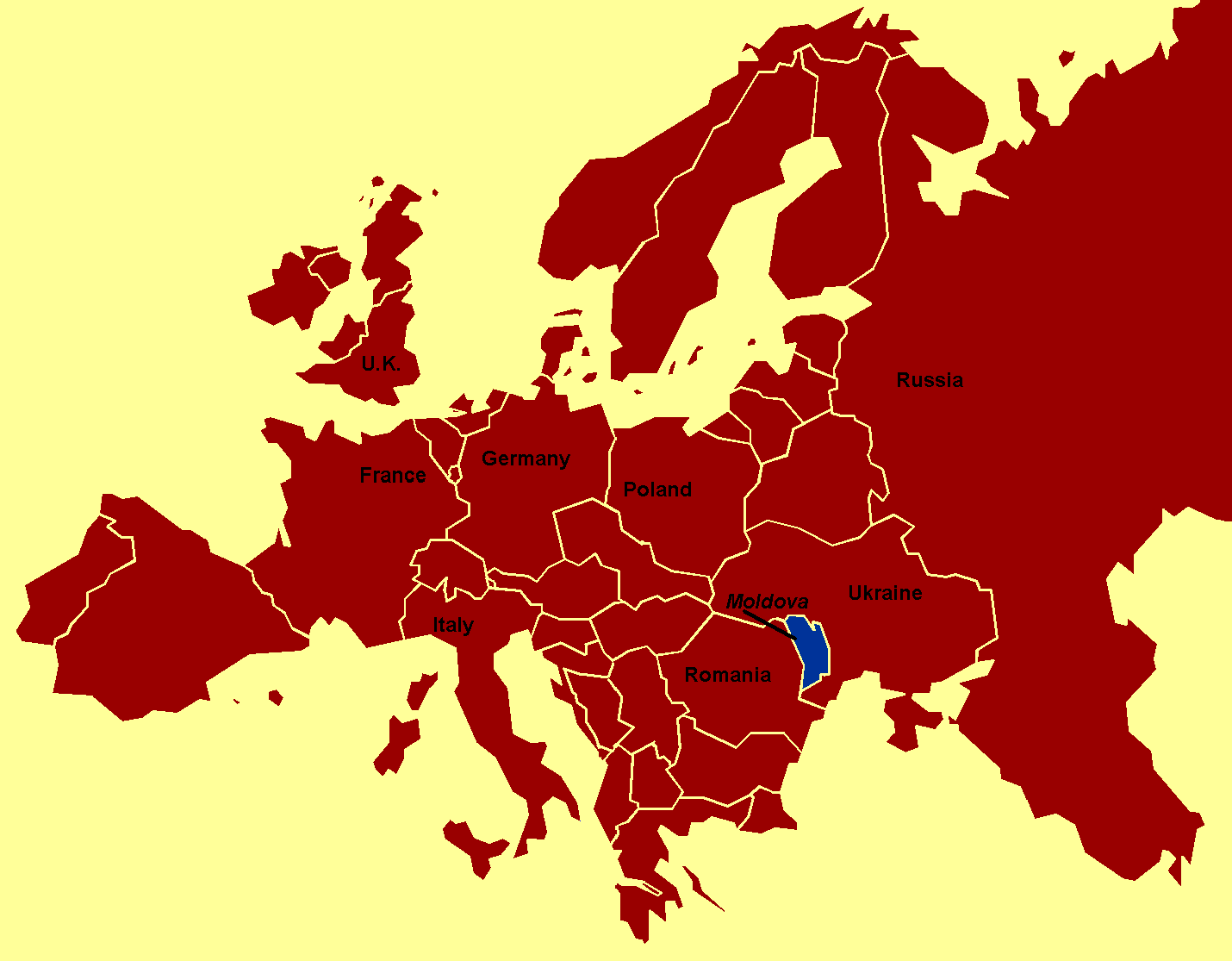
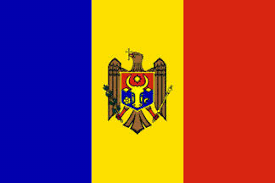
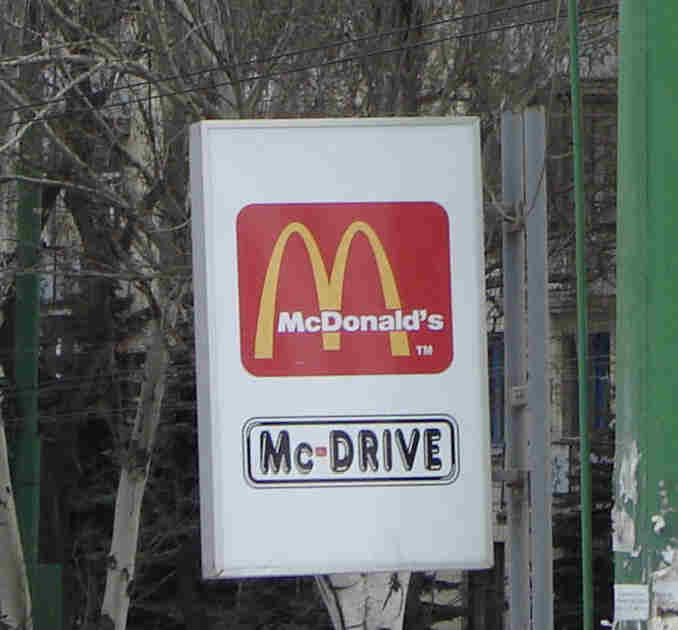 A sign for one of the three Chisinau McDonald's.
A sign for one of the three Chisinau McDonald's.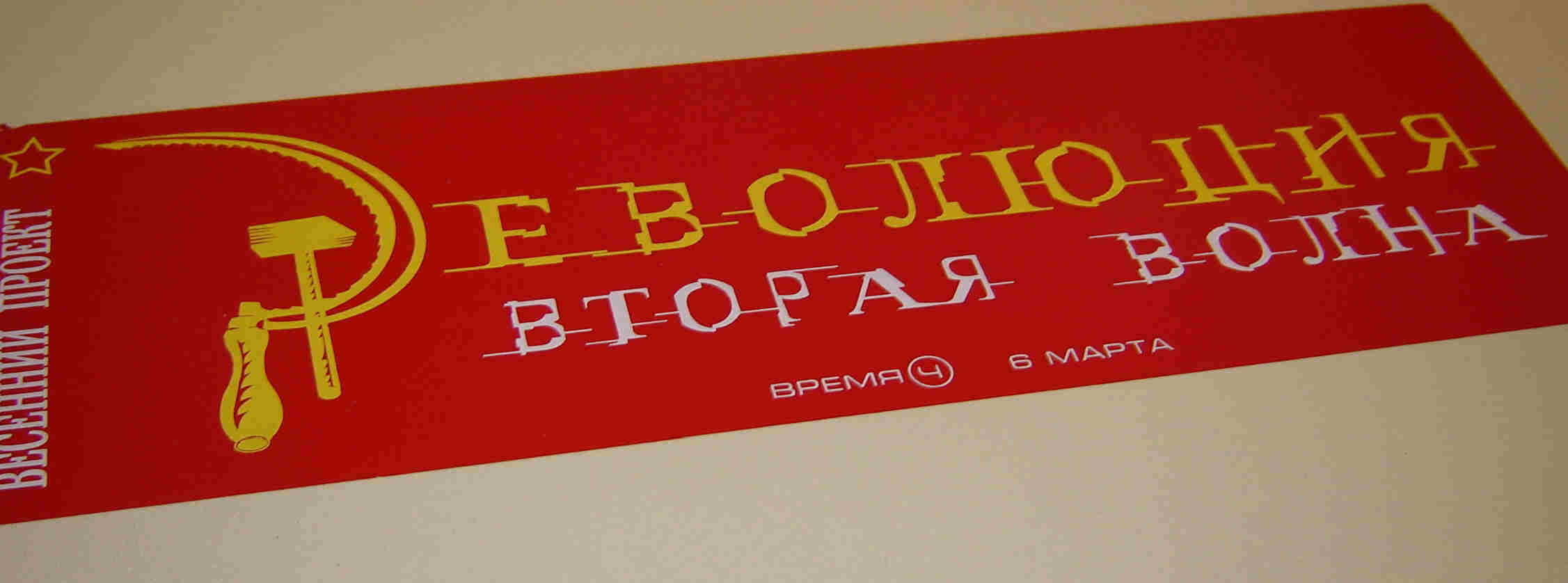 Join "the Revolution" at my gym...
Join "the Revolution" at my gym...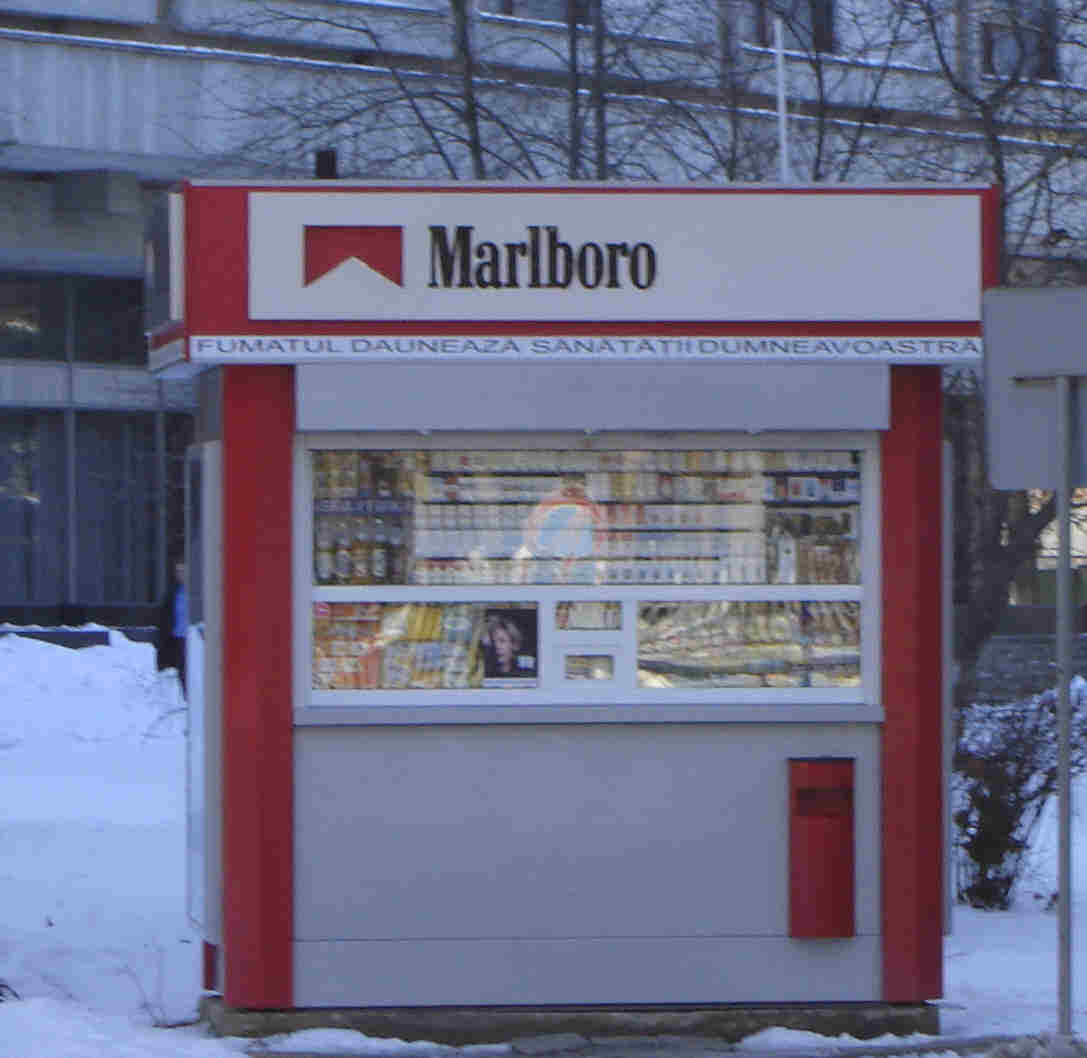 One of the kiosks that dot the city.
One of the kiosks that dot the city.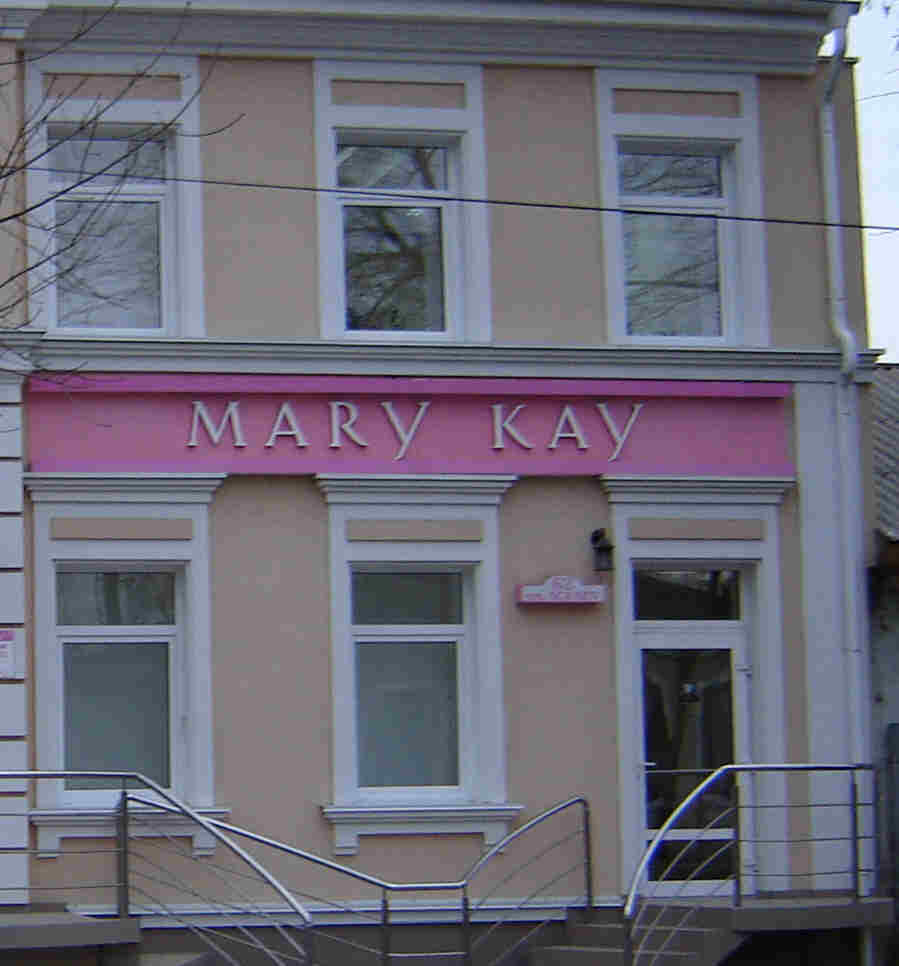 I wonder if the top sales representative dreams of a pink Lada...
I wonder if the top sales representative dreams of a pink Lada...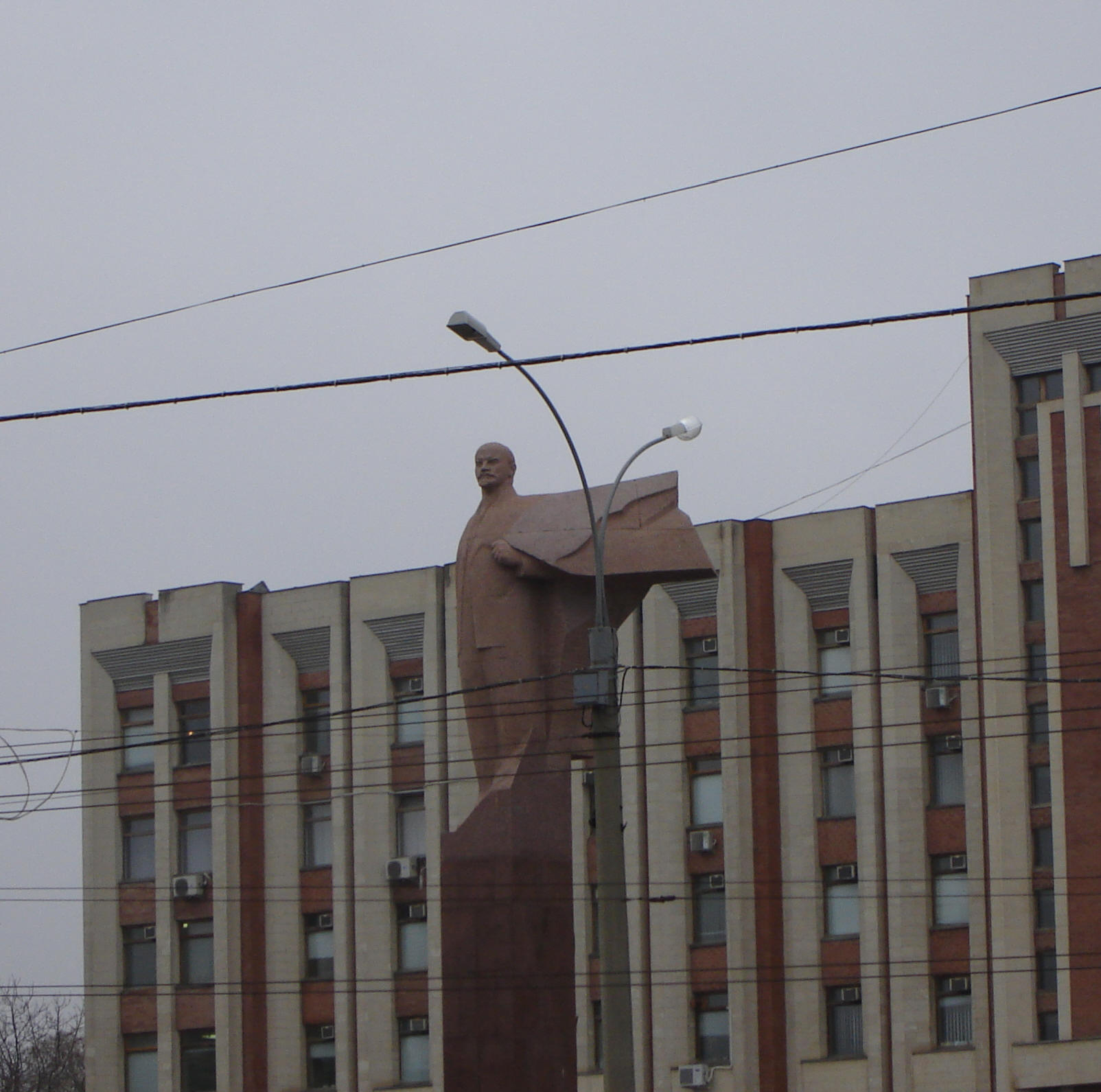 Lenin stands proudly in front of the Supreme Soviet of the
Transneistrian Republic of Moldova.
Lenin stands proudly in front of the Supreme Soviet of the
Transneistrian Republic of Moldova.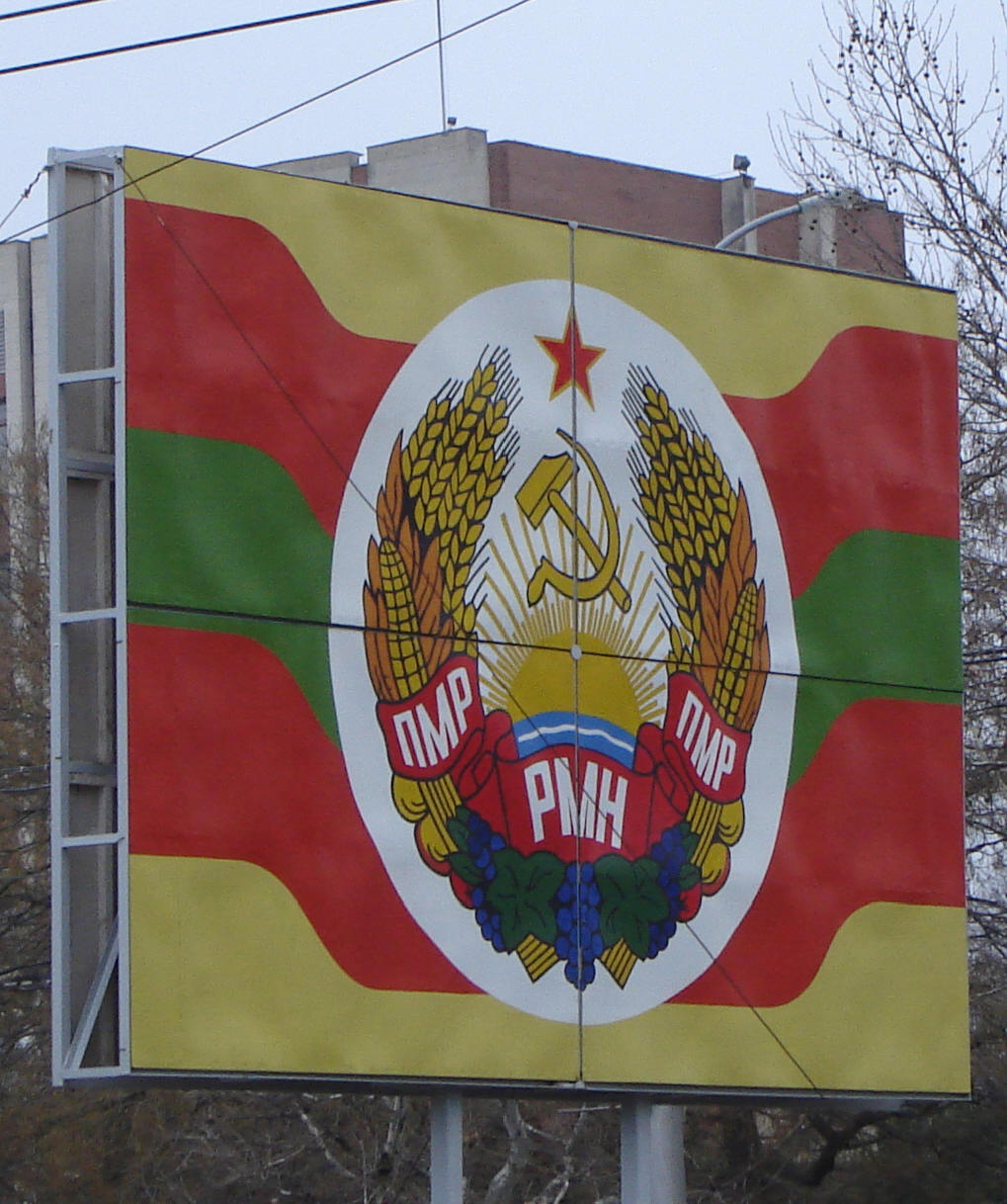 The
Transneistrian coat of arms over the flag.
The
Transneistrian coat of arms over the flag.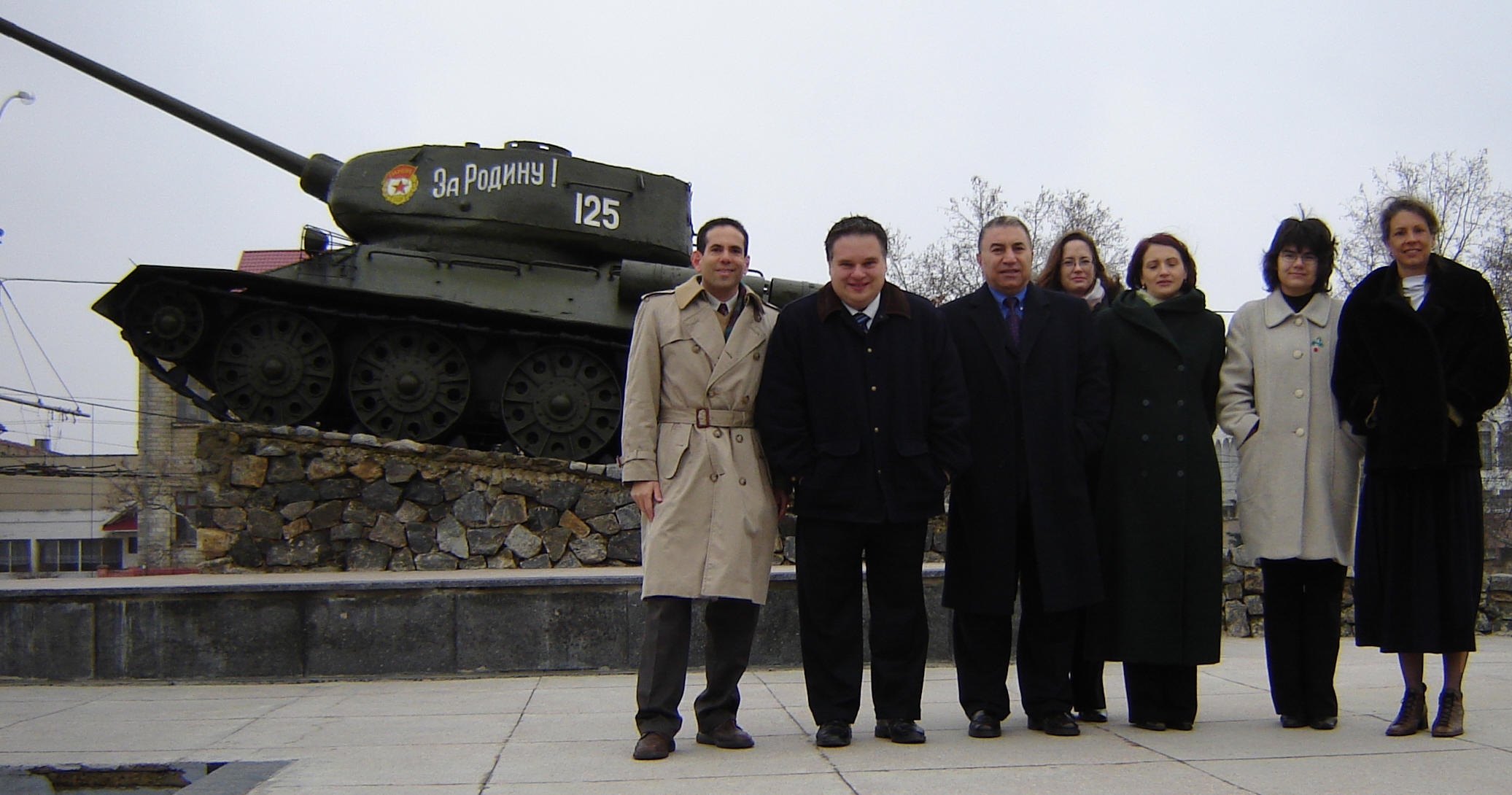 Our
delegation to Transneistria--(l to r) Dan, me, John Bailan (the new
Public Affairs Officer at the embassy), Patricia, Irina, Marcella, and
Fern--in front of the 1992 War Memorial.
Our
delegation to Transneistria--(l to r) Dan, me, John Bailan (the new
Public Affairs Officer at the embassy), Patricia, Irina, Marcella, and
Fern--in front of the 1992 War Memorial.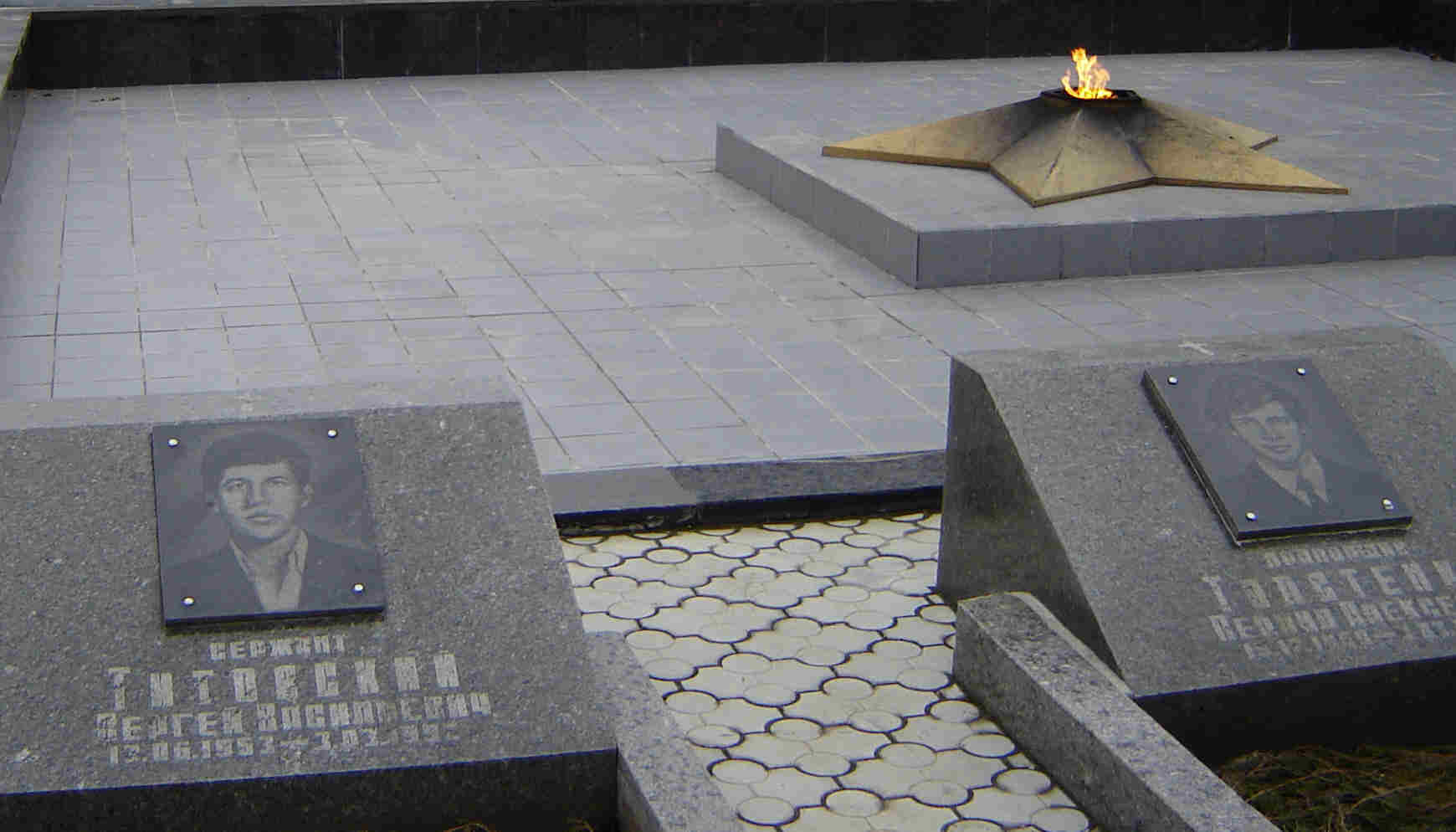 Memorial to those slain in the 1992 conflict--flame represents the
"unknown soldier".
Memorial to those slain in the 1992 conflict--flame represents the
"unknown soldier".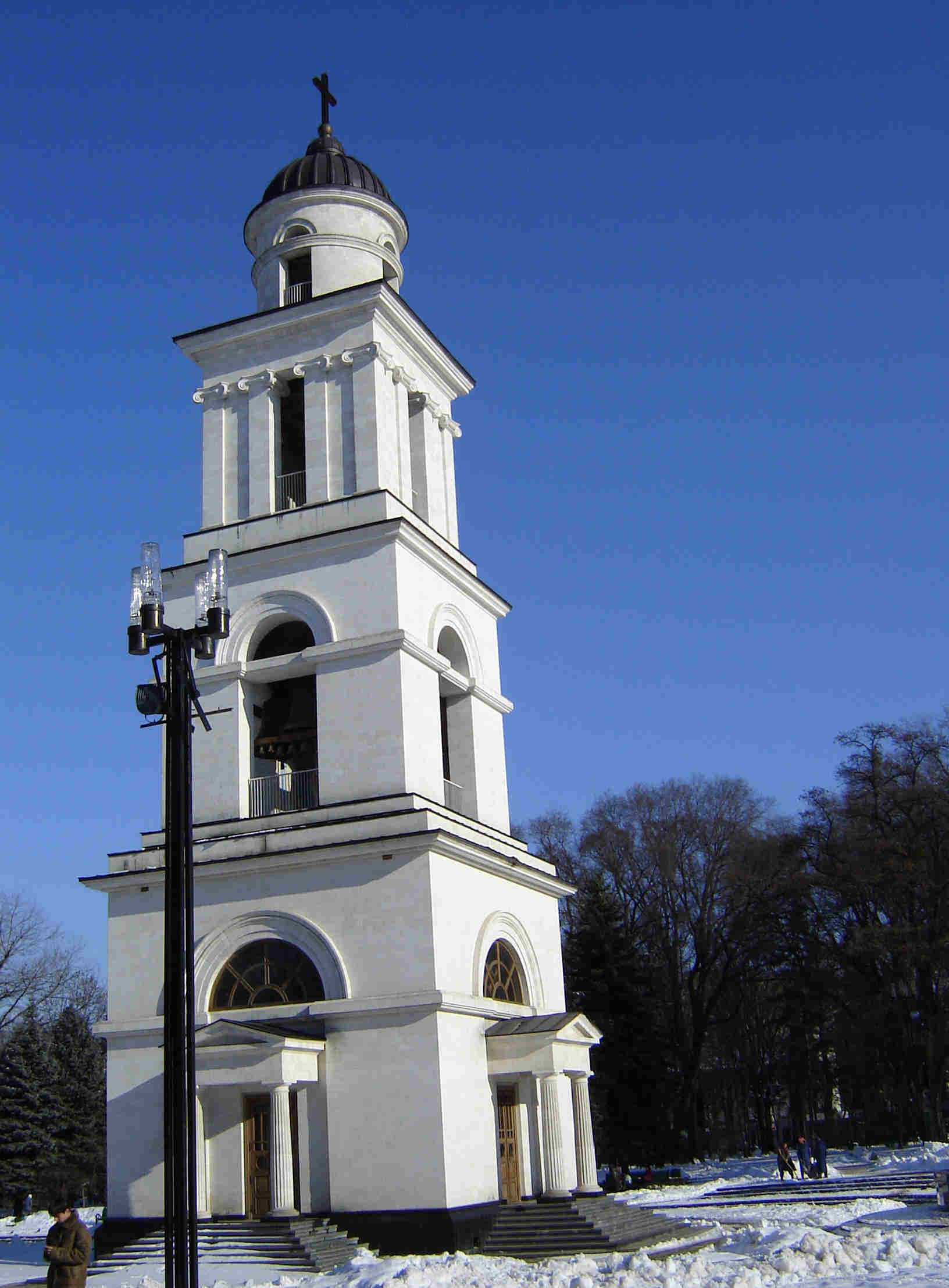 The Bell Tower at the Chisinau Cathedral 8 March 2006.
The Bell Tower at the Chisinau Cathedral 8 March 2006.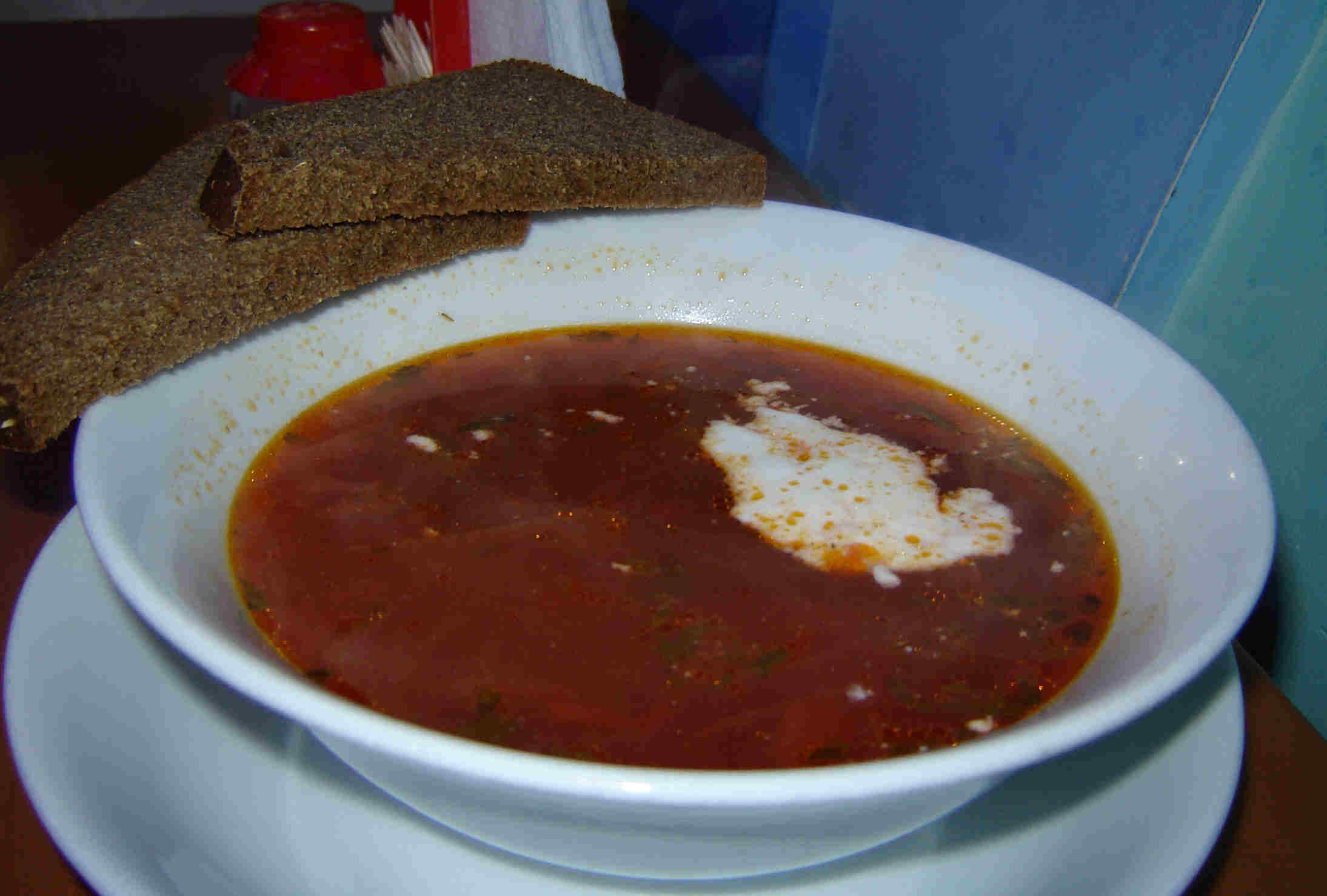
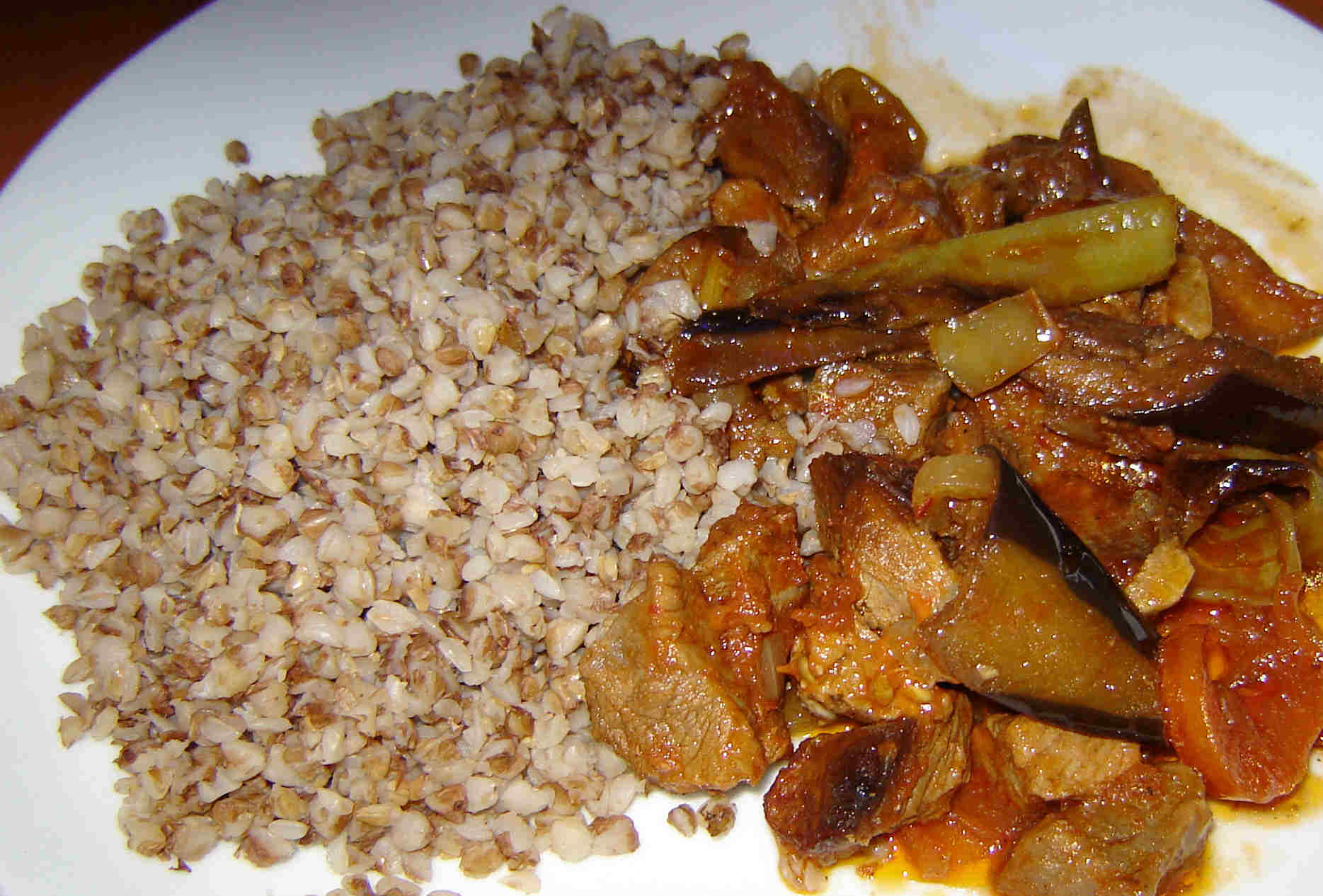 Mmmm...Bors with black bread and
boiled buckwheat with chicken and eggplant.
Mmmm...Bors with black bread and
boiled buckwheat with chicken and eggplant. 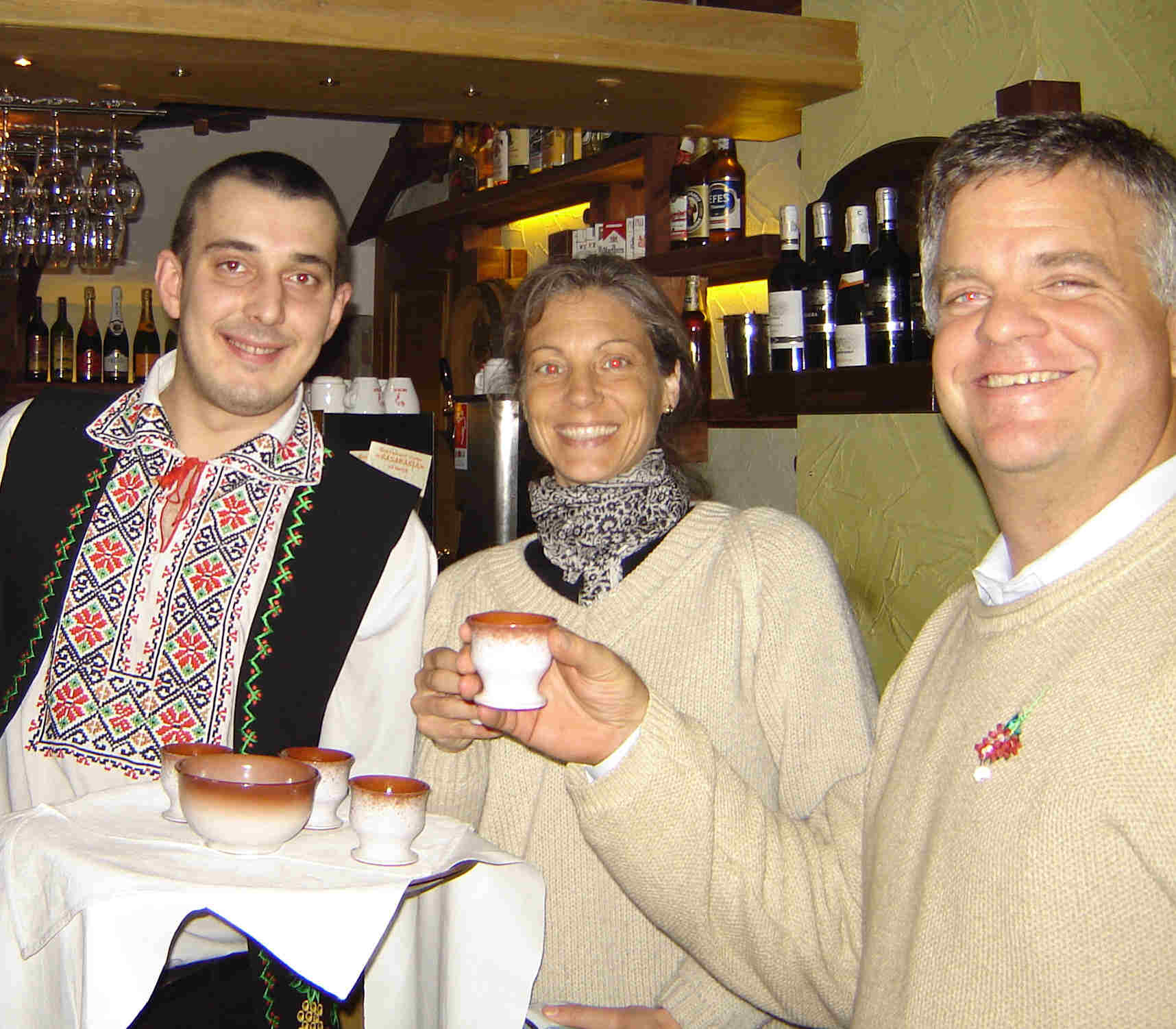
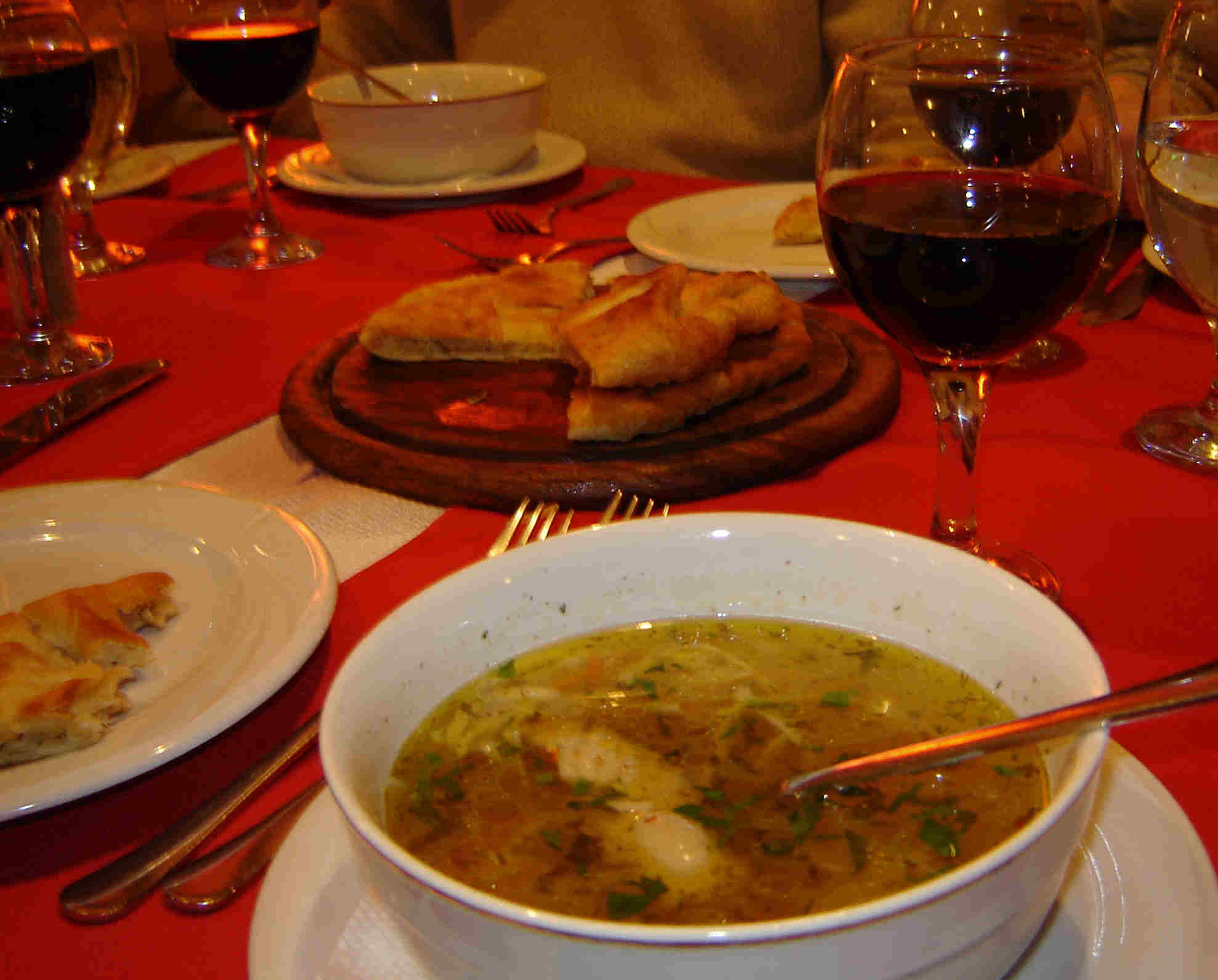 As mentioned, Moldova is a wine
producing nation--Fern & Geoff Greenwell are enjoying a final glass
before leaving Basarabia Restaurant. Ziama, a typical Moldovan
soup--chicken, noodles, and parsley with placintas in the background
(and wine, of course)
As mentioned, Moldova is a wine
producing nation--Fern & Geoff Greenwell are enjoying a final glass
before leaving Basarabia Restaurant. Ziama, a typical Moldovan
soup--chicken, noodles, and parsley with placintas in the background
(and wine, of course) Yum, yum...pizza with mayonnaise (no corn, sadly).
Yum, yum...pizza with mayonnaise (no corn, sadly).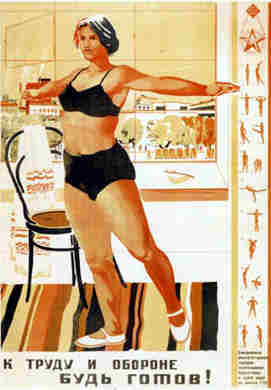 "BE IN SHAPE TO WORK AND DEFEND YOUR COUNTRY."
"BE IN SHAPE TO WORK AND DEFEND YOUR COUNTRY."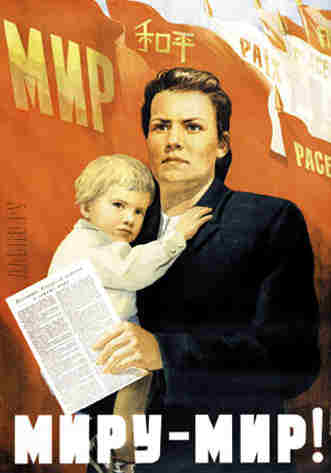 The woman demands "PEACE IN THE WORLD." One sarcastic description of
this poster calls her the ideal of Soviet womanhood--she reads boring
propaganda, she has devoided herself of Western ideals of femininity--no
makeup, functional clothing and, further, she is a serious mother, raising
a good Communist child!
The woman demands "PEACE IN THE WORLD." One sarcastic description of
this poster calls her the ideal of Soviet womanhood--she reads boring
propaganda, she has devoided herself of Western ideals of femininity--no
makeup, functional clothing and, further, she is a serious mother, raising
a good Communist child!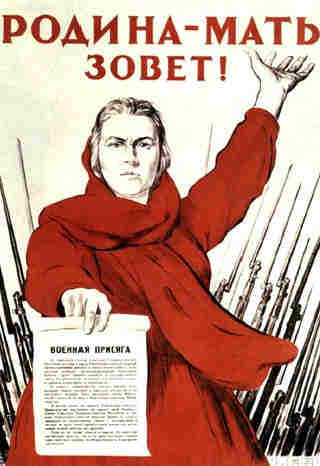 "THE MOTHERLAND ASKS YOU TO JOIN" a WWII recruiting poster.
"THE MOTHERLAND ASKS YOU TO JOIN" a WWII recruiting poster.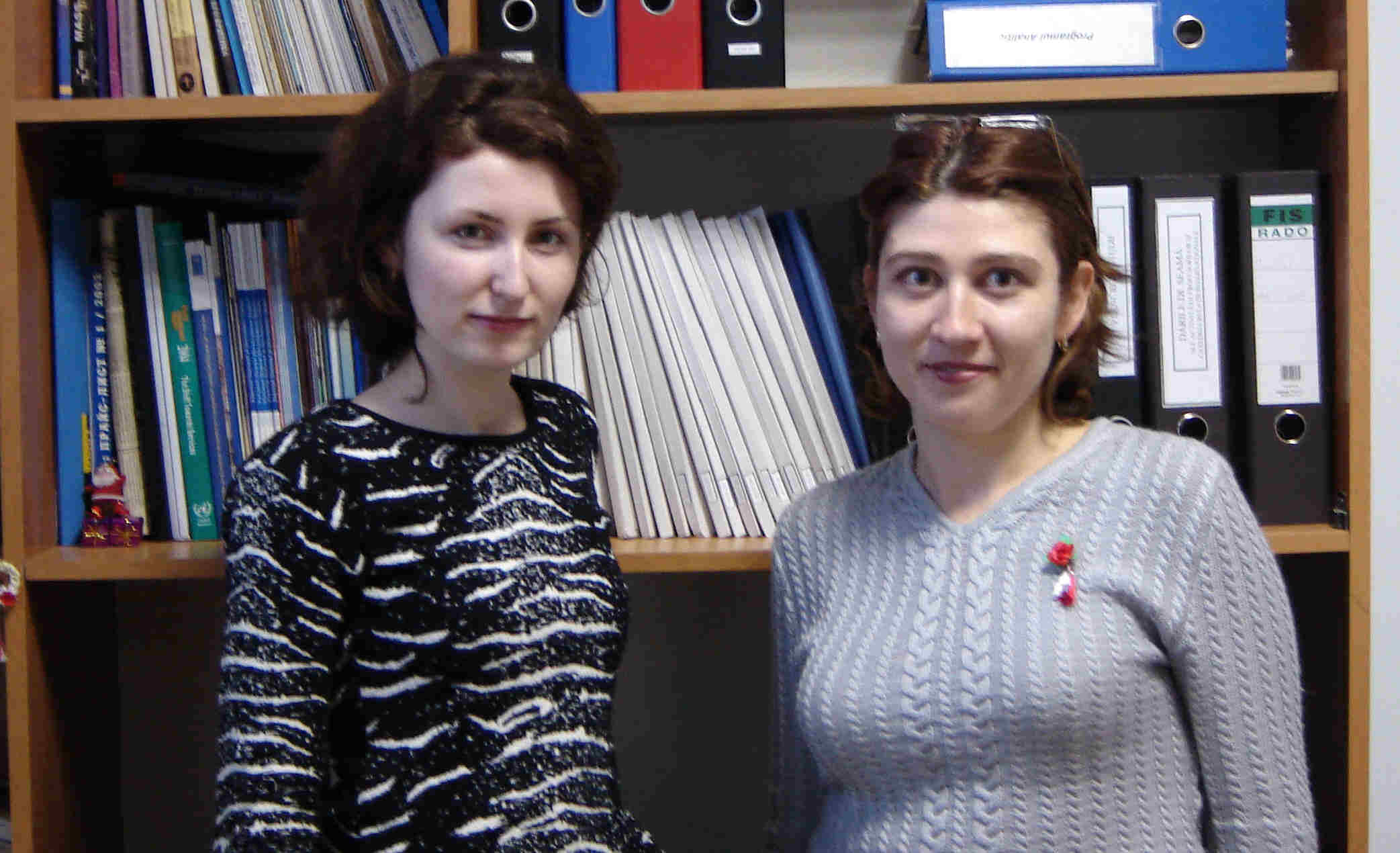 Two of my IRIM colleagues in the department of International
Relations. Aurica is the secretary for the department and does a
great job in keeping it organized and Svetlana is an instructor and my
liaison for the department--I saw her syllabus and she is a tougher
teacher than I am.
Two of my IRIM colleagues in the department of International
Relations. Aurica is the secretary for the department and does a
great job in keeping it organized and Svetlana is an instructor and my
liaison for the department--I saw her syllabus and she is a tougher
teacher than I am. 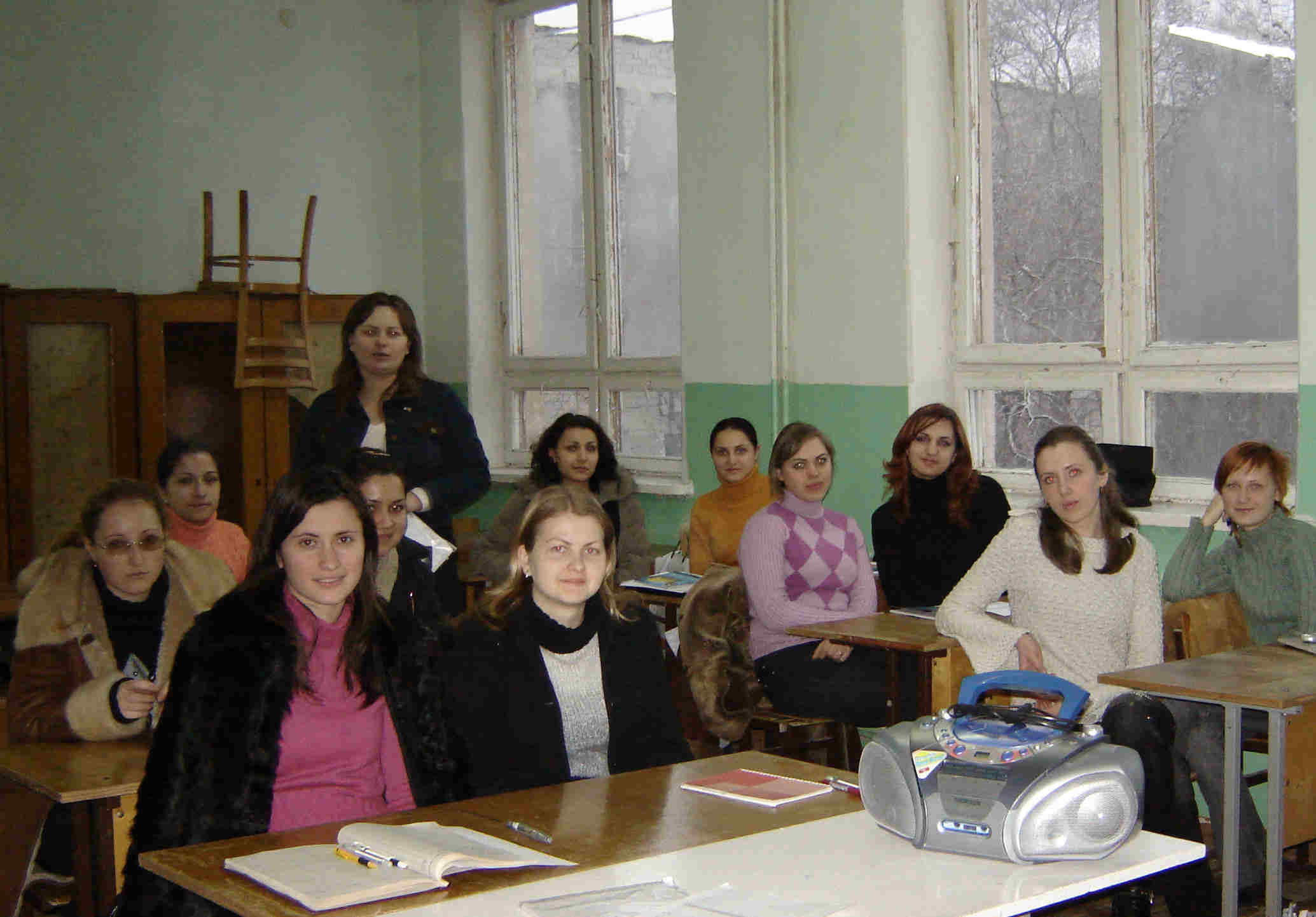 My friend and colleague Irina Nicorich (of the Germanic languages
department at IRIM) gets ready to teach another all female class.
For some reason the boys at the university are not interested in learning
English. Irina does great work and she has been my contact for Clipa
Siderala--she is invaluable for my maneuverings in Moldova! Irina is
also responsible for sending me all the great propoganda posters.
My friend and colleague Irina Nicorich (of the Germanic languages
department at IRIM) gets ready to teach another all female class.
For some reason the boys at the university are not interested in learning
English. Irina does great work and she has been my contact for Clipa
Siderala--she is invaluable for my maneuverings in Moldova! Irina is
also responsible for sending me all the great propoganda posters.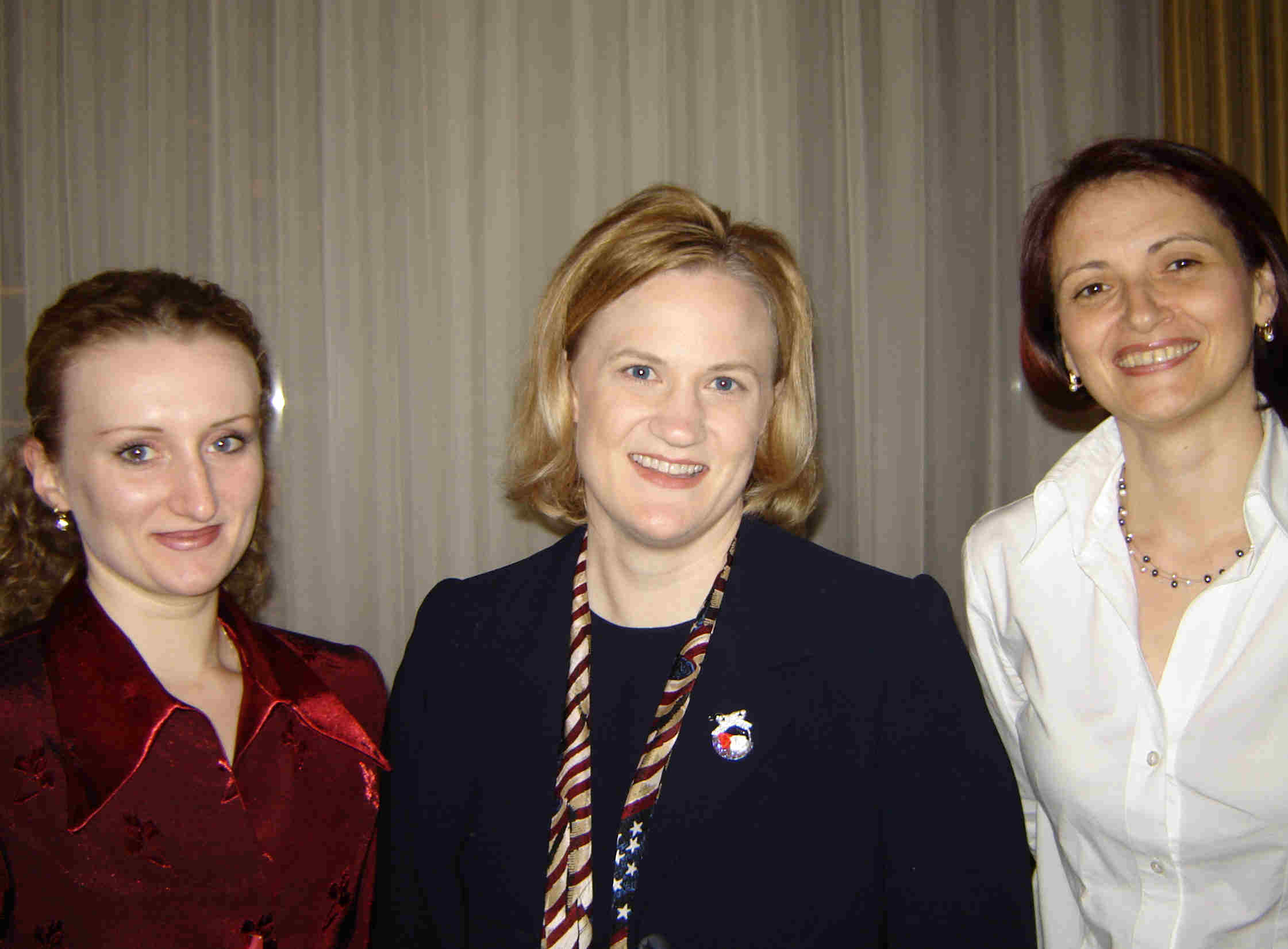 The women of the Public Affairs Section of the U.S. Embassy in Chisinau:
Ruxanda Negru, Aleisha Woodward, and Irina Colin. Picture was taken
at Aleisha's farewell party as she is returning to the U.S. after three
and a half years in Moldova. Without Irina and Ruxanda, my life in
Moldova would be far less enjoyable--they keep all of the Fulbrighters on
the right track. Betsy Lewis, the Deputy PAO, is not pictured.
The women of the Public Affairs Section of the U.S. Embassy in Chisinau:
Ruxanda Negru, Aleisha Woodward, and Irina Colin. Picture was taken
at Aleisha's farewell party as she is returning to the U.S. after three
and a half years in Moldova. Without Irina and Ruxanda, my life in
Moldova would be far less enjoyable--they keep all of the Fulbrighters on
the right track. Betsy Lewis, the Deputy PAO, is not pictured.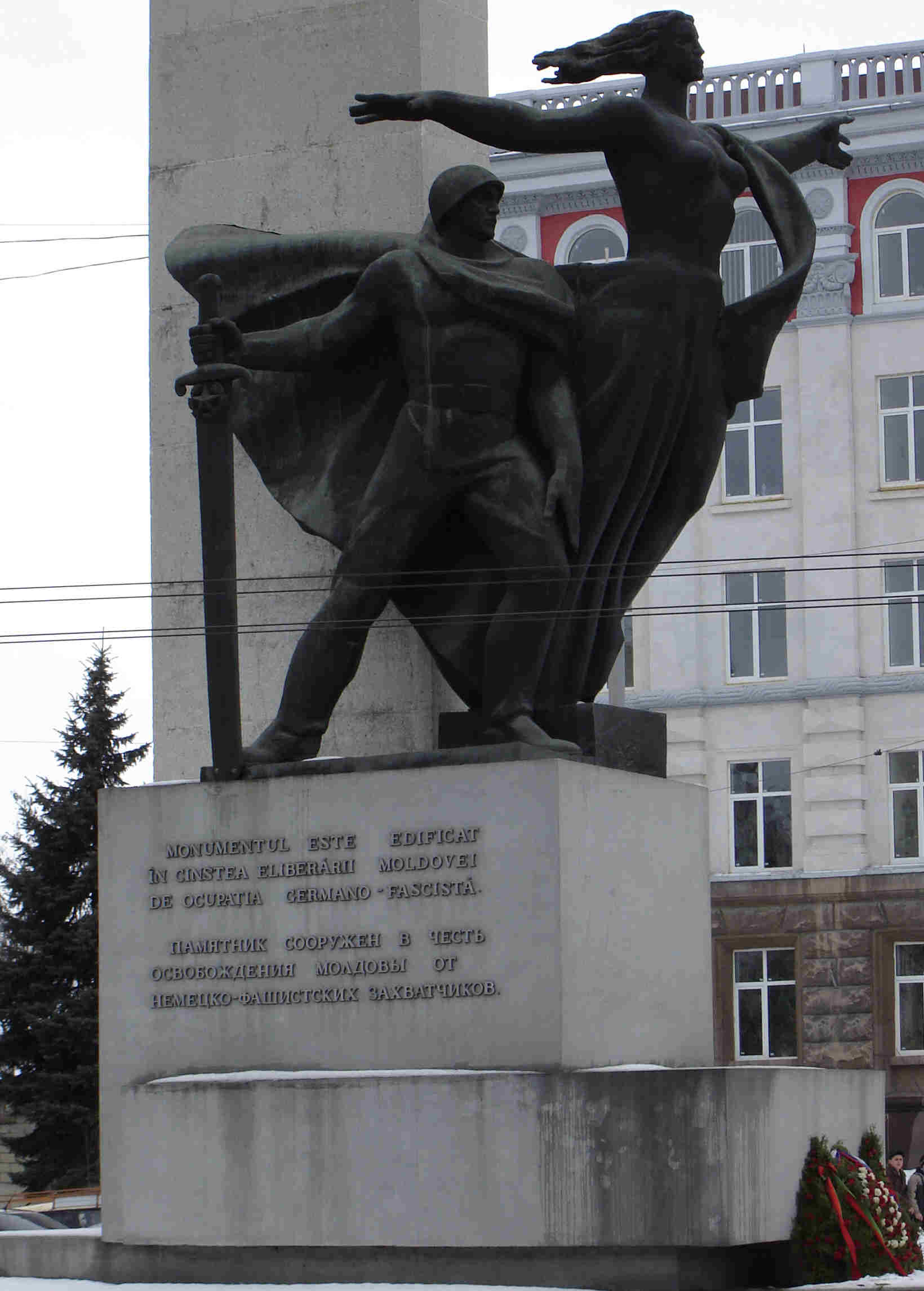 A statue in Chisinau honoring Mother Russia and the Soviet soldiers that
came to "liberate" Moldova in 1944.
A statue in Chisinau honoring Mother Russia and the Soviet soldiers that
came to "liberate" Moldova in 1944.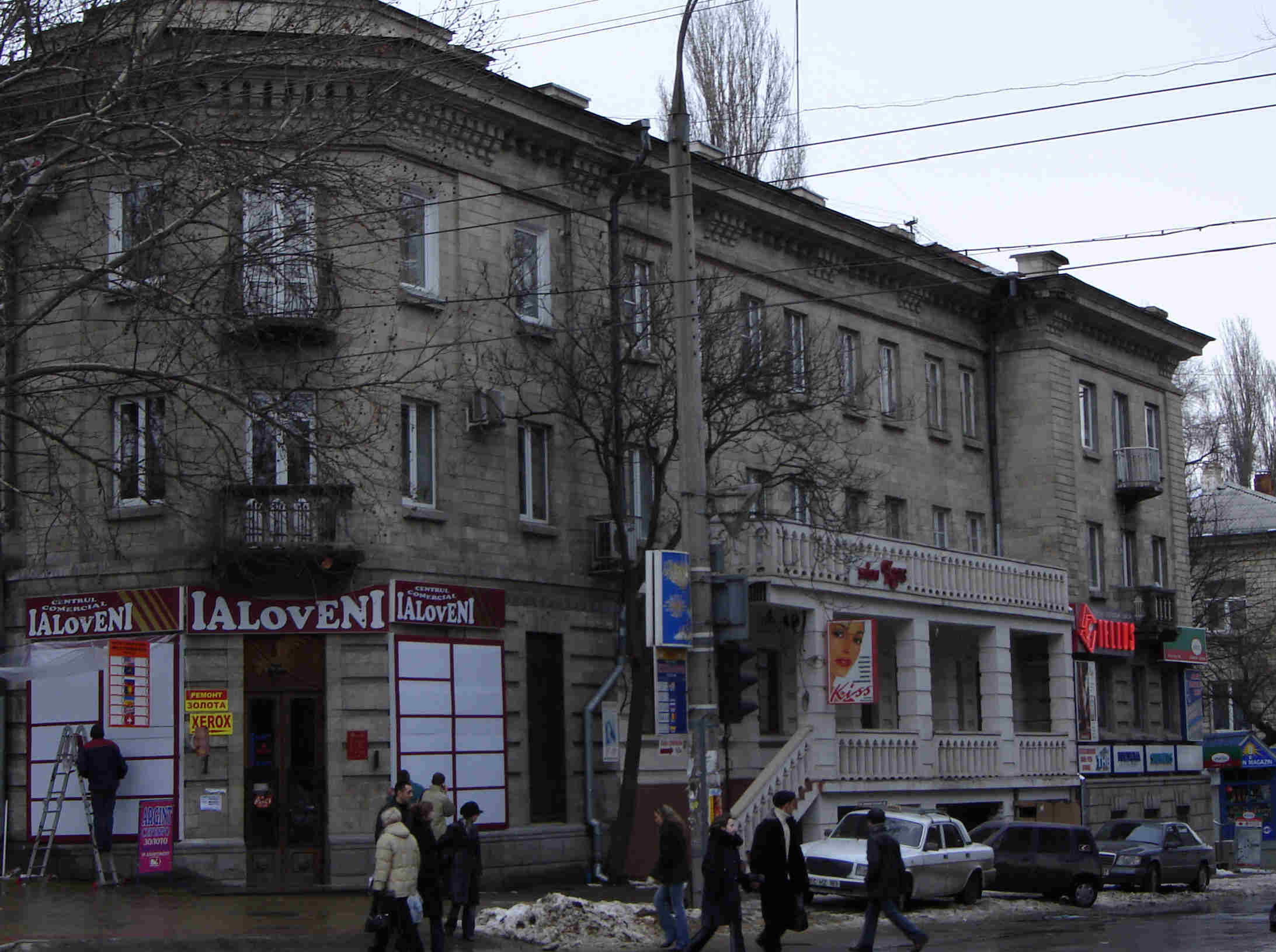 My "Stalin-ka." My apartment is on the top floor at the right of the
photo.
My "Stalin-ka." My apartment is on the top floor at the right of the
photo.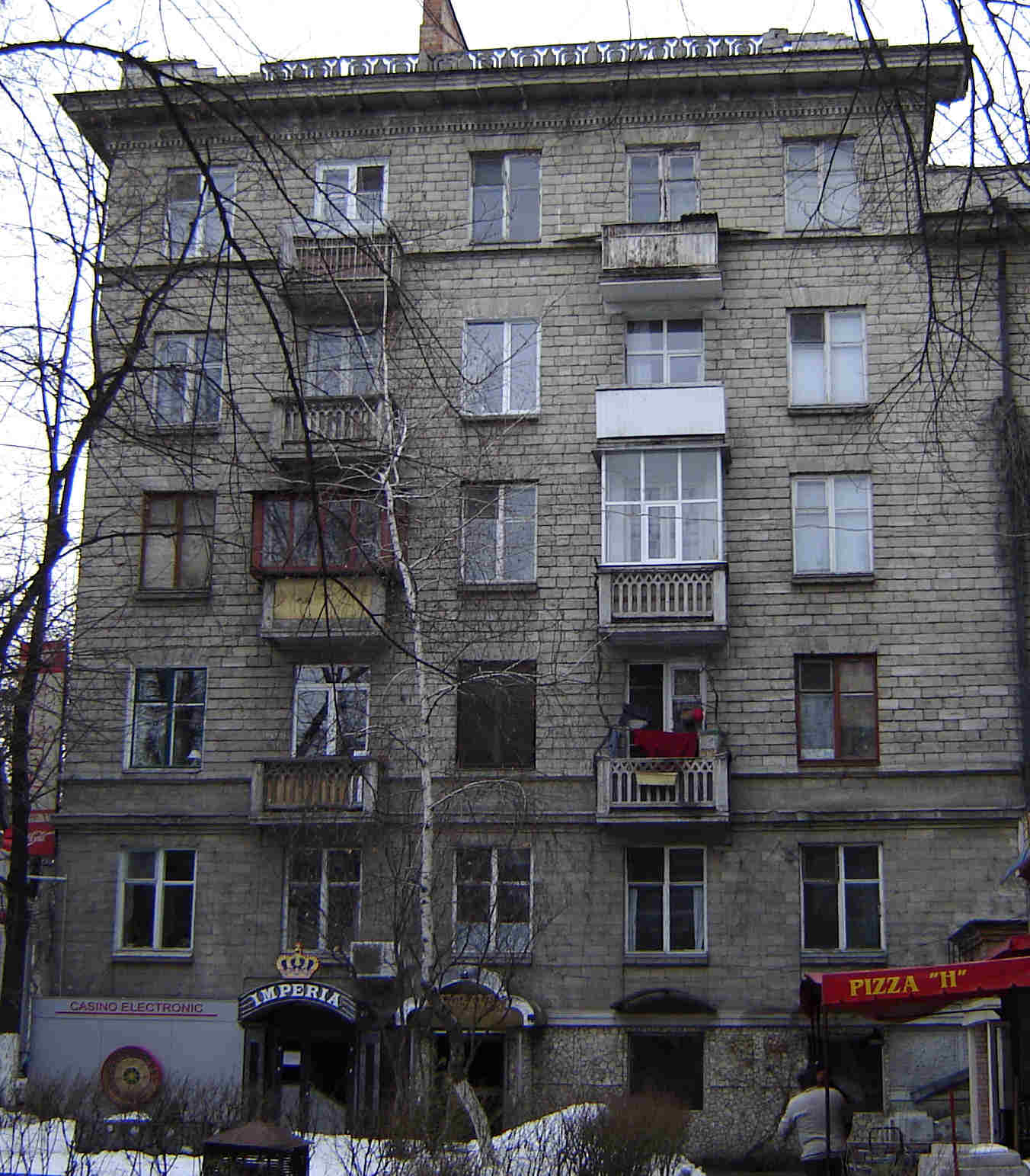 A "Khruschev-ka."
A "Khruschev-ka."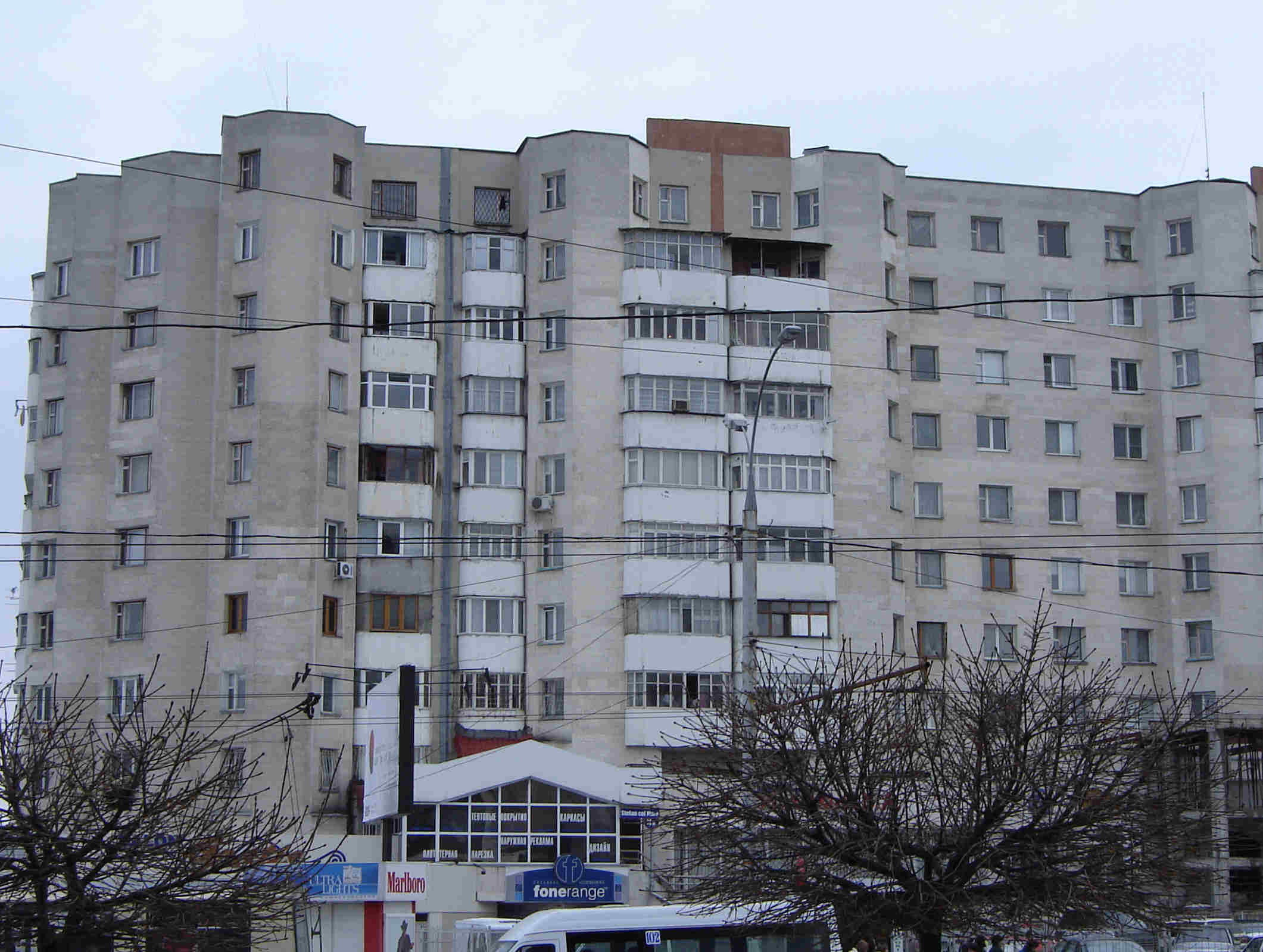 I call them "Breshnev-kas"
because these high-rises were built in the 1960s and 70s
I call them "Breshnev-kas"
because these high-rises were built in the 1960s and 70s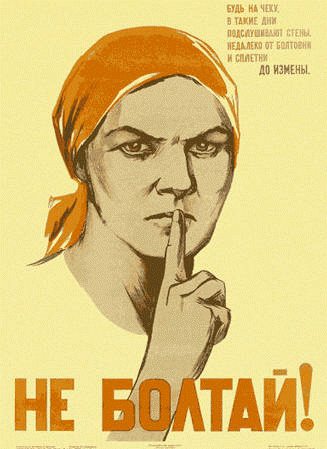 "DO NOT TALK!!
Beware, today even the WALLS ARE LISTENING! Blab and Gossip LEAD TO
TREASON."
"DO NOT TALK!!
Beware, today even the WALLS ARE LISTENING! Blab and Gossip LEAD TO
TREASON."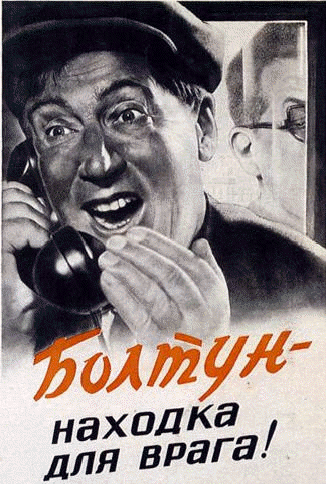 "An Idle Talker is a Godsend for the Enemy"
"An Idle Talker is a Godsend for the Enemy"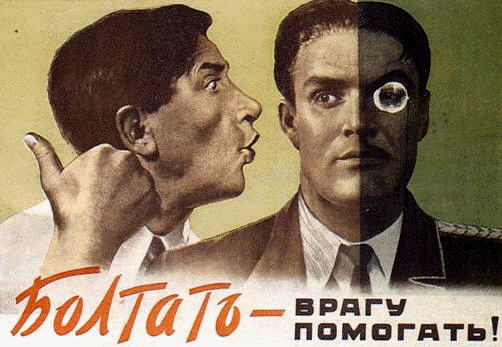 "TO TALK
MEANS TO HELP THE ENEMY"
"TO TALK
MEANS TO HELP THE ENEMY"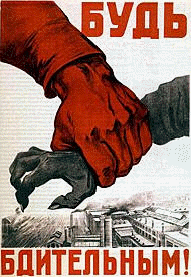 "BE ALERT"
"BE ALERT"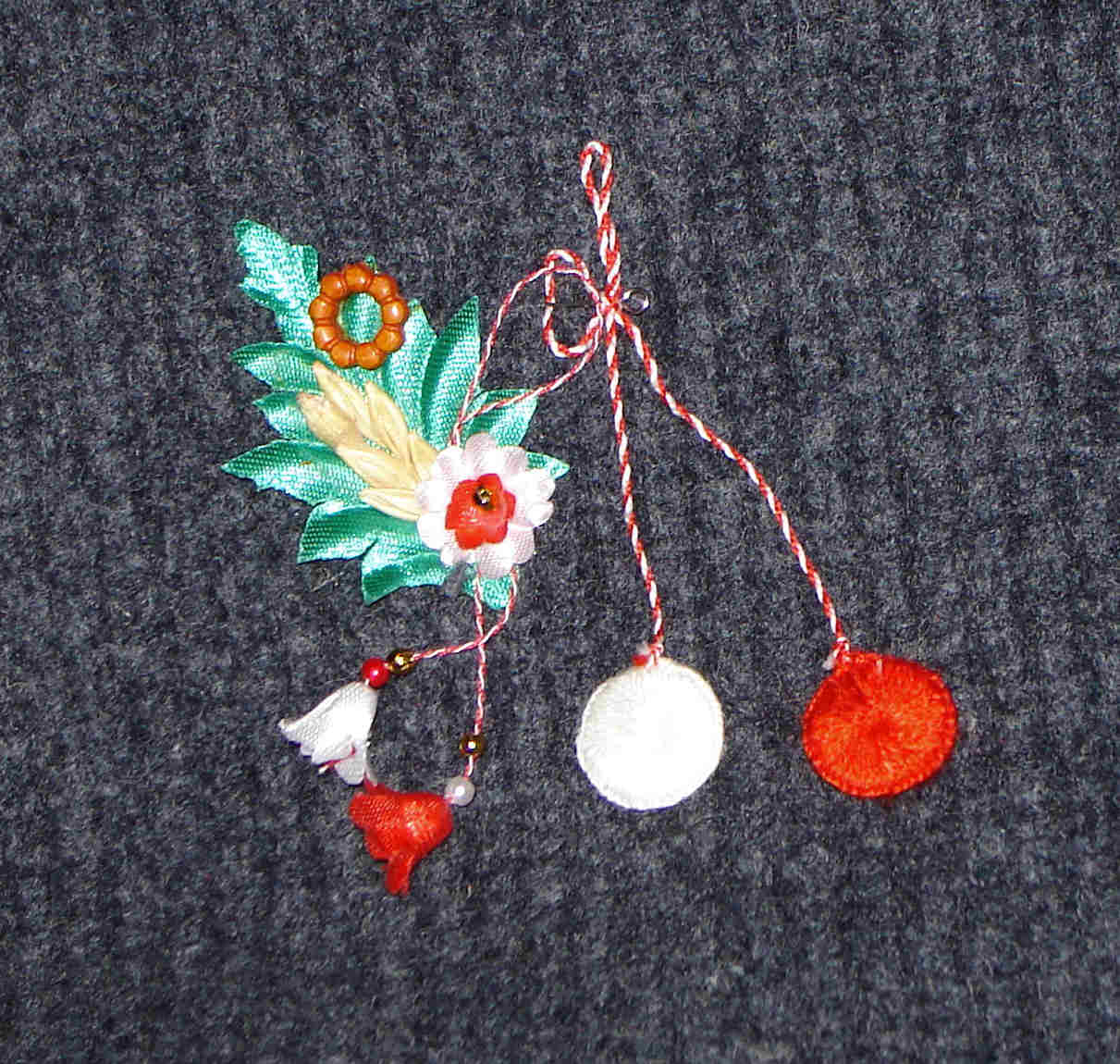 "Martisors" are on my sweater to remind me that I have friends and that
Spring is on the way!
"Martisors" are on my sweater to remind me that I have friends and that
Spring is on the way!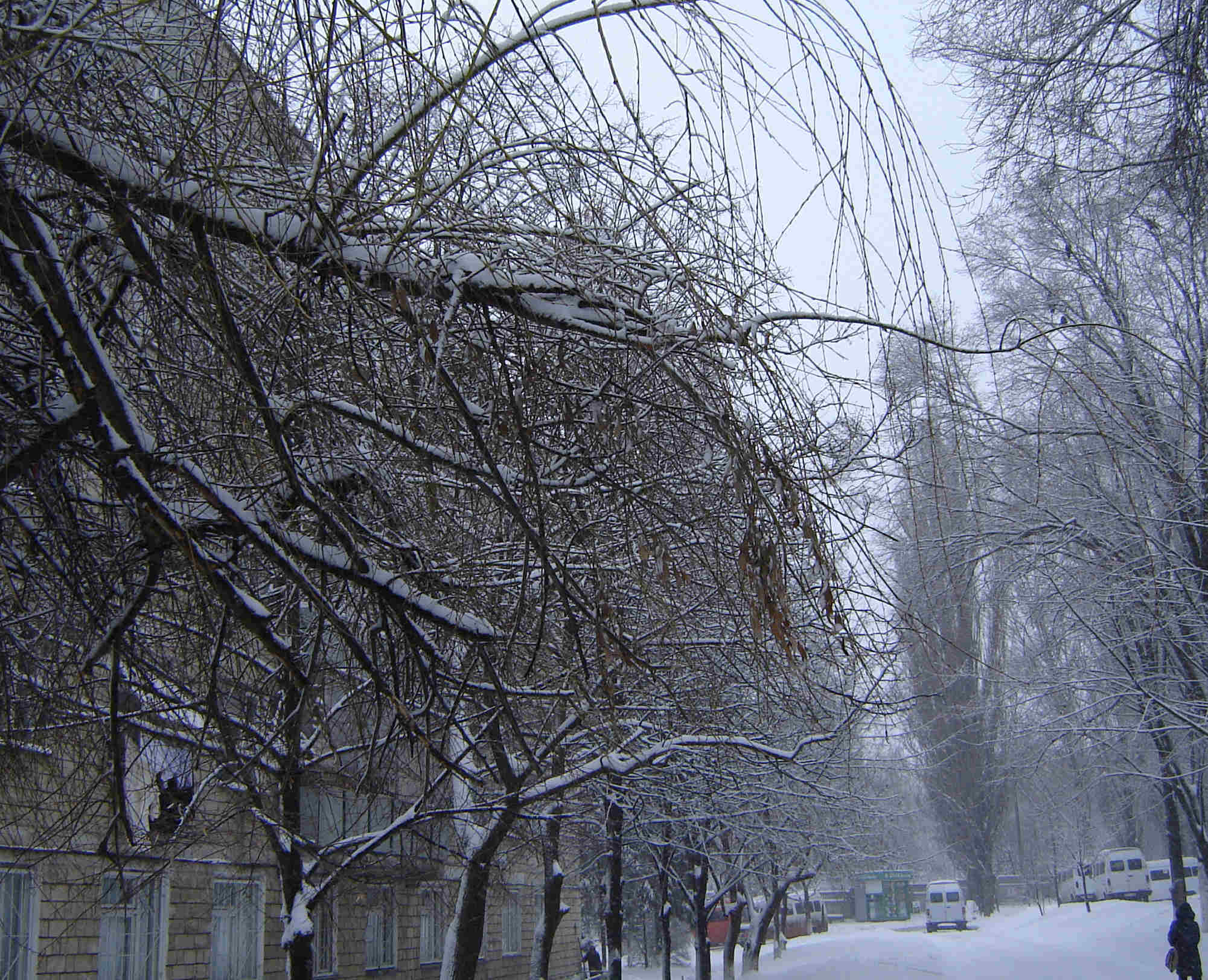 Baba Dochia had a dirty house on March 1st and shook her rugs...by March
3rd there was almost a foot of it!
Baba Dochia had a dirty house on March 1st and shook her rugs...by March
3rd there was almost a foot of it!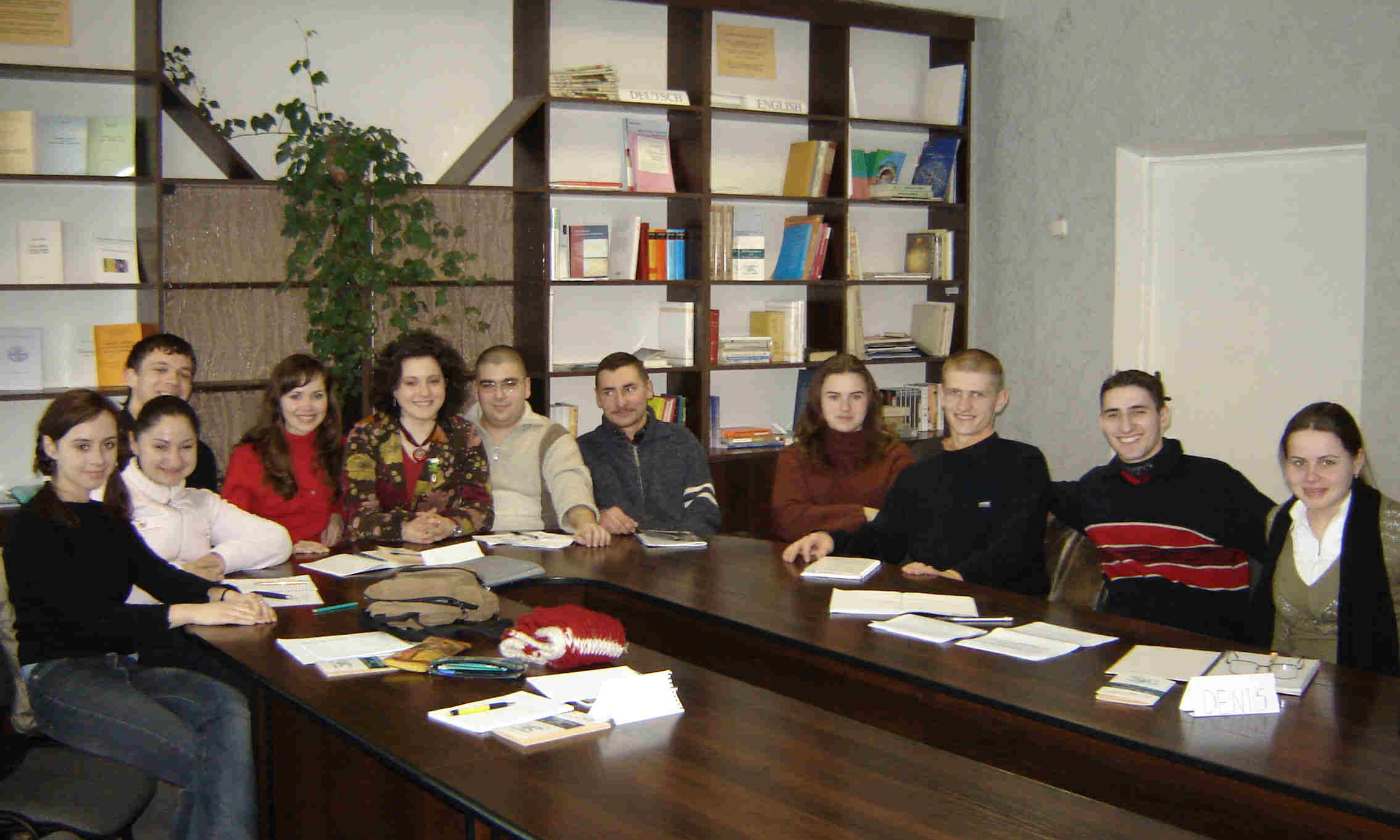 ISPRI
students (I have the nicest room at the institute).
ISPRI
students (I have the nicest room at the institute).